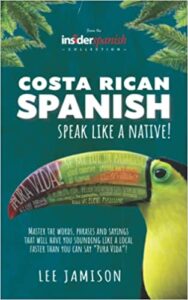Is Spanish hard to learn?
IS SPANISH HARD TO LEARN?
Spanish is a popular language to learn, and for good reason. It is spoken by over 400 million people worldwide, making it the second most spoken language on the planet. But just because it is popular, does that mean it is easy to learn?
First, let’s define what we mean by “hard” when it comes to learning a language. To some people, a “hard” language might be one that has a completely different alphabet or writing system, such as Chinese or Arabic. To others, a “hard” language might be one with a lot of grammar rules and complex verb conjugations, such as German or Russian.
In the case of Spanish, it does have a different alphabet than English, with the addition of ñ and a few accent marks. However, for English speakers, this is not as difficult to learn as a completely new writing system, such as Chinese characters. In terms of grammar, Spanish does have some rules and verb conjugations that can be challenging for English speakers to learn. However, many of these rules and conjugations follow patterns and can be learned with practice.
One factor that makes Spanish a bit easier to learn for English speakers is the fact that the two languages have a lot of similarities. They both come from the same language family, Indo-European, and have borrowed many words from each other over the years. This means that many Spanish words are recognizable to English speakers, and vice versa. For example, the Spanish word “computadora” (computer) and the English word “email” are similar and can easily be understood by speakers of both languages.
Another factor that makes Spanish easier to learn is the fact that it is a phonetic language, meaning that words are pronounced exactly as they are written. This is in contrast to English, which can be quite unpredictable when it comes to pronunciation. For example, the English word “comb” is pronounced differently than the word “tomb,” even though they are written with the same letters. In Spanish, however, words are always pronounced the same way they are written, which makes it easier for learners to know how to say a word correctly.
Despite these advantages, learning Spanish can still be challenging for some people. One reason for this is the fact that the language has a lot of regional variations. Spanish is spoken in many different countries, each with its own accent, vocabulary, and slang. This means that a word that is commonly used in one country might not be understood in another. For example, the word “chapa” means “license plate” in Spain, but in Argentina it means “can” or “tin.” This can be confusing for learners who are not familiar with the different regional variations of the country they are visiting,
If you wonder how hard Spanish is to learn, consider these:
- What language do you already speak:
If you are a native English speaker or your native language is derived from Latin (French, Italian …) you are in luck because many studies have shown that it was a easy language for those individuals
- It is a language widely used across the globe:
Nevertheless, Spanish is widely spoken across many countries worldwide. The entertainment industry with Spanish language music or movies have gained a lot of popularity amongst non-Spanish speaking populations
- What is difficult:
The grammar can always be cumbersome
The masculine and feminine can be tricky to remember
The pronunciation is harder for some people
Other than that, my personal opinion is that no, Spanish is not hard to learn: you decide how easy or how hard you want to make it
See other relevant post: How long does it take to learn Spanish?

